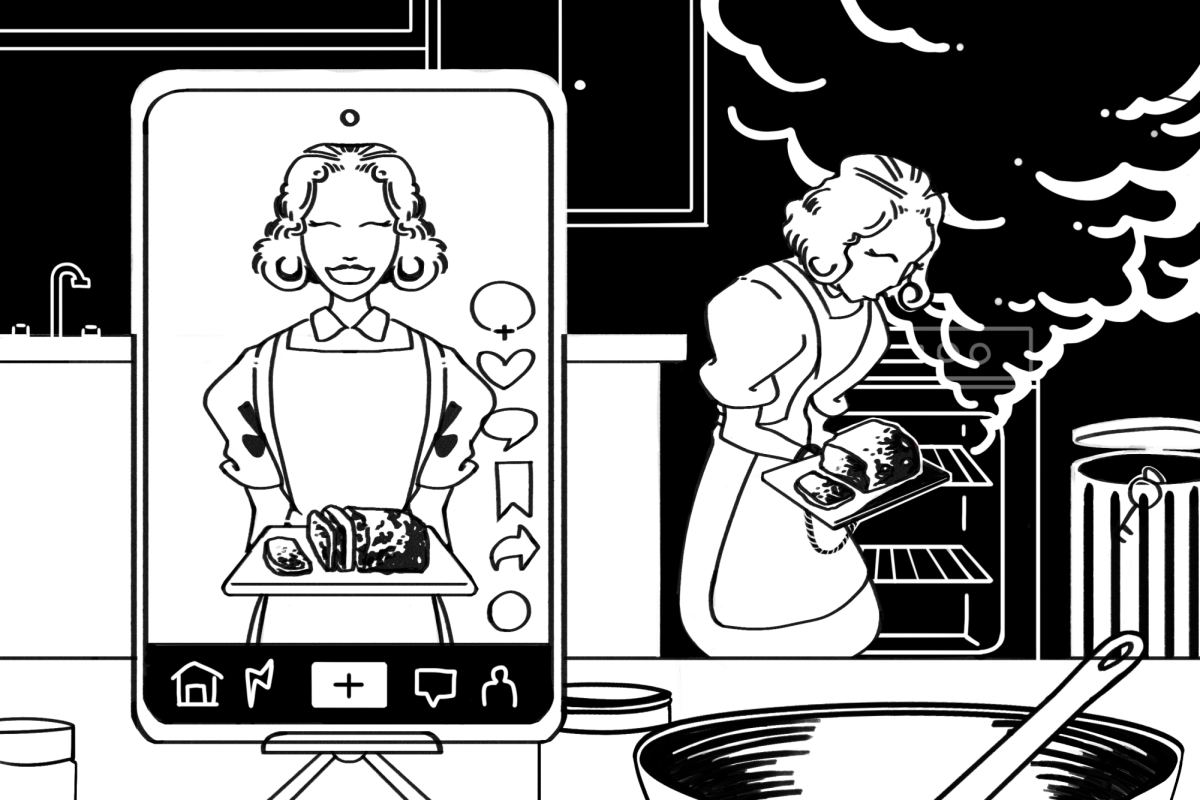On social media, a gateway to alt-right and misogynistic content has emerged; while men have predominantly been the target demographic among influencers such as Joe Rogan and Andrew Tate, women have increasingly been targeted into the slippery slope of conservative content.
Gossip videos countlessly attack female celebrities and influencers with the justification of holding them accountable for their problematic behaviors, while in reality, taking advantage of the onslaught of critique to distract from issues they’re victims of, instilling rigid and toxic gender norms. The growing focus on internalized misogyny that condemns women in the public sphere for “imperfection” as well as glorification of only stereotypical roles (i.e., housewives) normalizes one path for women, pushing them down and limiting their perspective.
Celebrity gossip has always propagated through social media, yet has since crossed the line of lightheartedness. Traditional gossip has evolved into videos excessively targeting controversies surrounding female celebrities in comparison to their male counterparts, fueling public hate trains.
Content online has diminished women, faulting and critiquing them unfairly in the entertainment industry. After actress Blake Lively’s lawsuit against Justin Baldoni in December 2024, gossip reemerged over her morals and ethics, explicitly critiquing her 2012 plantation wedding. While her moral objectionability holds no weight in her lawsuit, the internet ran with it — mounds of content critiquing her values flooded social media, turning the public eye against her and in favor of Baldoni, despite its irrelevance to the lawsuit itself. Morally, Lively can be seen as questionable; however, as a victim, these traits are used to villainize her for not being a “perfect victim”. By victim-blaming Lively due to her character, women are held to a high — and seemingly impossible — standard perpetuated by society.
Tradwife content has also significantly risen, glorifying the role of a domestic housewife: a popular 1950s role. Tradwife content empowers traditional gender roles; influencer Nara Smith went viral for making a variety of food items from scratch and giving rise to the tradwife wave through her lifestyle. Smith often cooks food from scratch and cares for her three children and husband, welcoming viewers into the traditional gender norms that have become less commonplace — women tending to the home and children, cooking and cleaning, while their husbands work.
Every woman has the choice to take whatever route she wants to in life, whether it be launching her career or following the tradwife lifestyle. Yet, when tradwife content seems to be the only female-based content online that is viewed positively, it instills the belief that all women must revert to this role, instead of being a simple avenue they can choose, bordering on extremist ideals.
In a political climate with increasingly conservative content surfacing day by day, along with social media’s increasing influence in shaping users’ views, individuals are more vulnerable than ever to subtle alt-right propaganda. To avoid feeding into degrading gender stereotypes, people must examine media with a critical eye, staying conscious of the media they consume.
















































